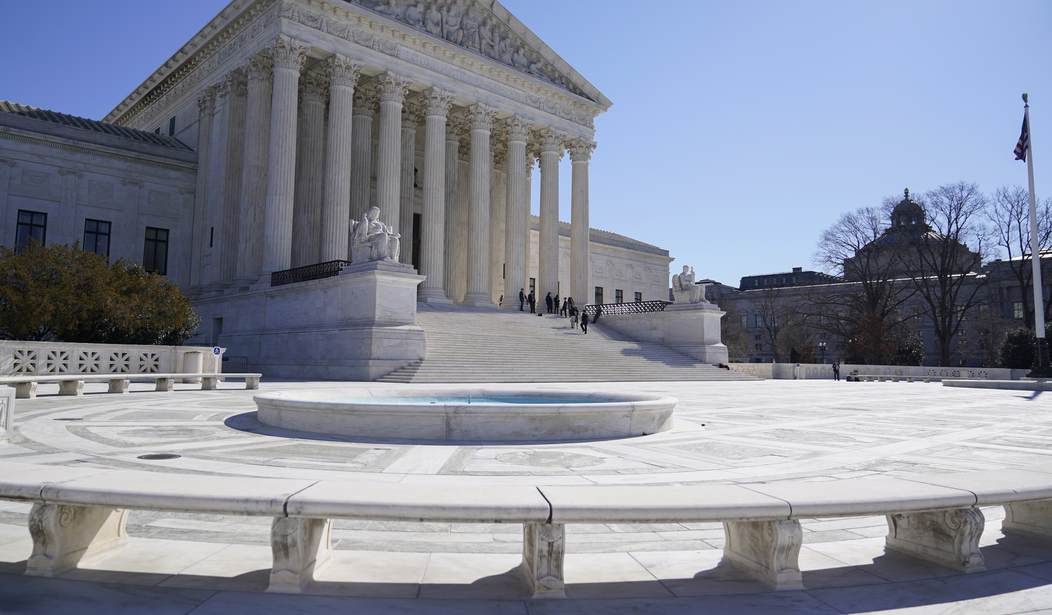In addition to President Joe Biden's nomination of Judge Ketanji Brown Jackson to replace retiring Justice Stephen Breyer on Thursday last week, there was more news out of the U.S. Supreme Court, in this instance to do with a key free speech case the justices will be hearing in the Fall, 303 Creative LLC v. Elenis.
The case centers around Lorie Smith, the owner of 303 Creative, a web design studio. She has stressed that she serves and is willing to serve all kinds of people, but is not willing to create web designs that violate her religious beliefs, such as her opposition to same-sex marriage.
As I covered last September, at the time Smith's attorneys with Alliance Defending Freedom (ADF) petitioned the Court to hear her case, Smith faced a 2-1 loss at the U.S. Court of Appeals for the 10th Circuit. A majority of the court agreed that Smith serves all people, and yet still felt it was acceptable for Colorado's Anti-Discrimination Act to compel Smith into creating web designs that go against her sincerely held religious beliefs, or else be forced out of business.
ADF General Counsel Kristen Waggoner raised such points in a press call last week:
Like countless other artists, Lorie Smith serves all people. The 10th Circuit agreed.
Lorie’s website designs are also speech protected under the First Amendment. The 10th Circuit agreed with that too.
And Lorie chooses whether to create websites based on their content, not the people asking for those websites. The 10th Circuit agreed here as well.
But despite all that, the majority determined that Colorado’s law trumps artists’ First Amendment rights: that they can actually be compelled to create art that communicates ideas contrary to their convictions and then be compelled to publish those ideas on the web for all to see. Colorado says Lorie can be made to do all these things while being forced to put her company’s name – and its seal of approval – on speech that promotes ideas that violate her conscience.
Recommended
ADF has more about that 10th Circuit ruling as well:
The 10th Circuit issued an unprecedented decision in the case, 303 Creative v. Elenis, holding that Smith serves “all people regardless of sexual orientation,” yet Colorado’s Anti-Discrimination Act requires her to engage in speech that violates her conscience and in turn creates a “substantial risk” of removing “certain ideas or viewpoints from the public dialogue.” Further, the law allows secular artists but not religious ones like Smith to make “message-based refusals.” The 10th Circuit nonetheless took the extreme position that the government may force an artist to create expressive content, even if that artist’s “pure speech” violates her faith, going so far to suggest that the more unique or custom the speech is, the more power the state has to compel it.
If that Colorado Anti-Discrimination Act sounds familiar, that's because it's the same law that's been justified to drag Christian baker Jack Phillips through the courts for three separate cases. He too will serve all people, but not when it comes to creating cakes that go against his religious beliefs. This includes cakes celebrating same-sex weddings, gender transitions, Halloween, Harry Potter, etc.
As ADF also mentioned:
For years, Colorado has relentlessly sought to target certain speakers, and other states have followed that example. As ADF explained in a brief asking the high court to accept Smith’s case, “The First Amendment’s promises of free speech and religious liberty are bedrock principles. Yet over the past decade, those promises have been shattered: Elane Photography and Sweet Cakes are out of business, Barronelle Stutzman was forced to retire, Emilee Carpenter is risking jail, Bob Updegrove and Chelsey Nelson are in harm’s way, and Jack Phillips is still in court, pursued by a private enforcer who wants to finish the job. This Court must act now or officials with enforcement power over nearly half the country’s citizens will continue compelling artists to speak against their consciences while silencing them from explaining their beliefs.”
The U.S. Supreme Court in 2018 ruled in Phillips' favor in the 7-2 case of Masterpiece Cakeshop v. Colorado Civil Rights Commission, yet the state and activists have sought to keep punishing him.
The state subsequently took action against him, in a case that they ultimately settled. Now, a transgender attorney who is also an activist determined to publish Phillips has dragged him through the courts as well, demanding such items as a birthday/gender transition cake.
Phillips lost his case last year in Scardina v. Masterpiece Cakeshop at the trial court level, and he too has appealed with ADF's help.
In a book released last year that I reviewed for Townhall, as well as an excerpt shared to Townhall about his book and his experiences, Phillips has detailed how poorly the state has treated him for trying to live out his beliefs and stay in business.
According to a SCOTUSblog profile page about the case, the justices will decide the question of "Whether applying a public-accommodation law to compel an artist to speak or stay silent violates the Free Speech Clause of the First Amendment."
ADF also shared on Tuesday that 16 states and 45 members of Congress, as well as many legal scholars, economists, publishers, and media organizations, among others, have filed friend-of-the-court amicus briefs in support of Smith.

























Join the conversation as a VIP Member